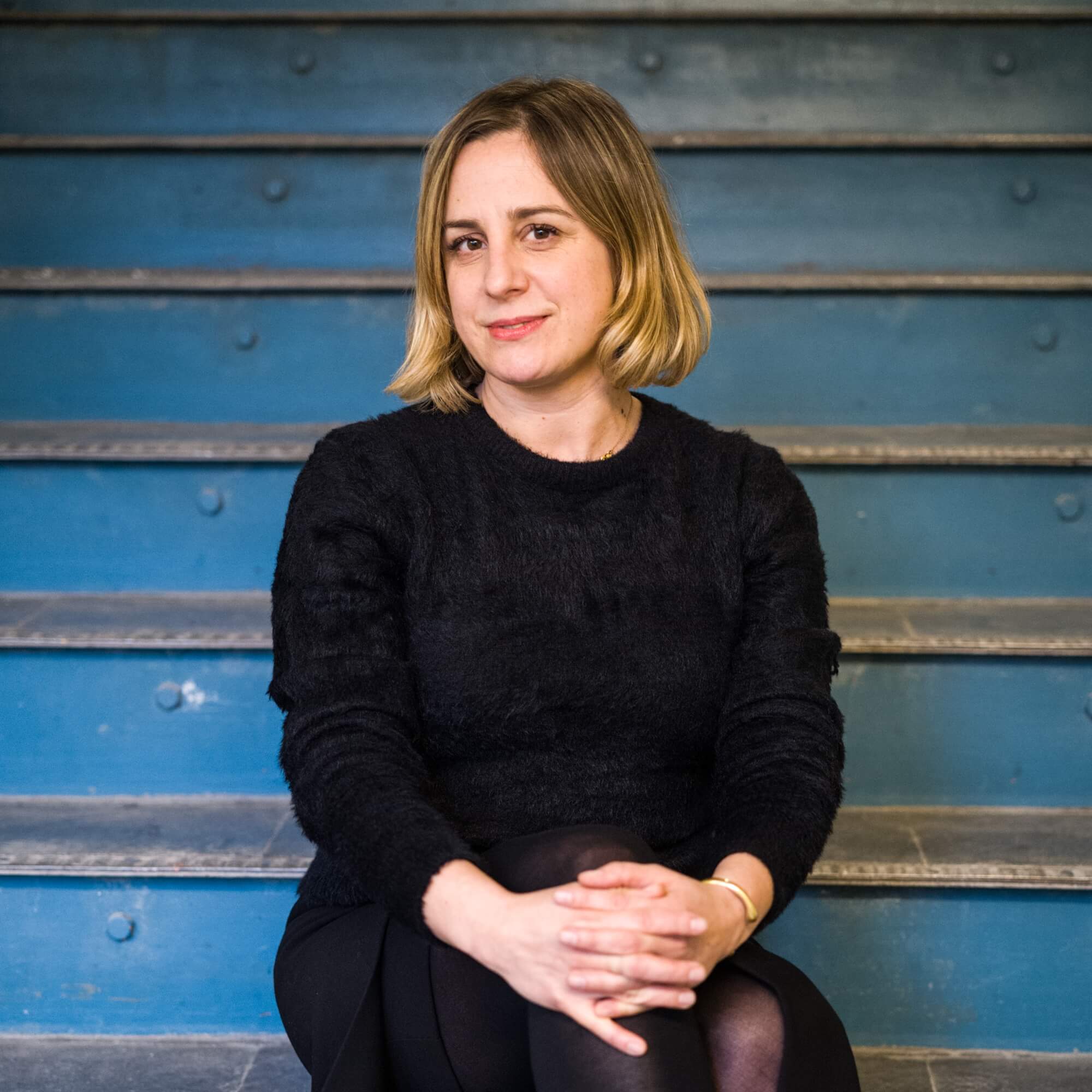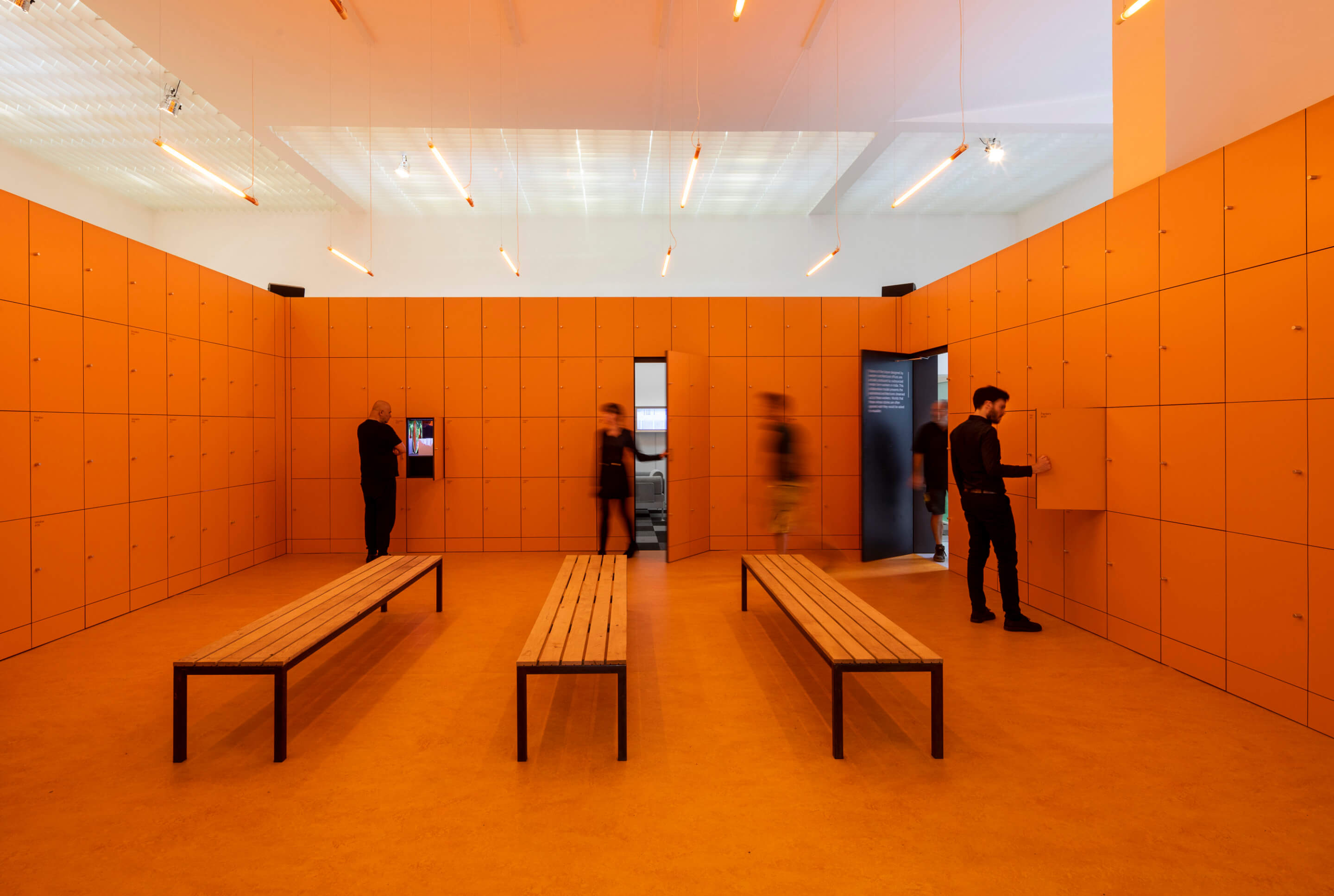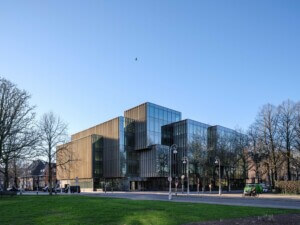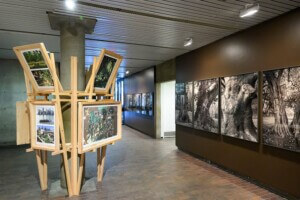The Harvard Graduate School of Design (GSD) has named Netherlands-based architect and curator Marina Otero as the recipient of the 2022 Wheelwright Prize. Otero is the newly instated head of the social design masters at Design Academy Eindhoven. Previously, from 2015 to 2002, she served as director of research at Rotterdam’s Het Nieuwe Instituut (HNI), the Dutch Institute for Architecture Design and Digital Culture.
Now in its 10th cycle as an international open competition, the Wheelwright Prize, which first originated at Harvard GSD in 1935, is a research travel-based grant of $100,000 that funds proposals put forth by “extraordinary early-career architects.” Otero’s winning proposal, Future Storage:Architectures to Host the Metaverse, will survey “new architecture paradigms for storing data and how reimagining digital infrastructures could meet the unprecedented demands facing the world today,” as detailed in a press announcement. Otero’s globe-spanning “field research, data collection, and prototype development will all result in the first open-source manual for global data center architecture design containing examples of ecological, circular, and egalitarian data storage models.”

Similar to past Wheelwright Prize winners, the prize will fund two years of research and travel. For Otero, who will begin research and data collection for Future Storage this summer, these travels will include visits to the renewable energy powerhouses of Iceland and Sweden as well as Chile, a country that serves as a proving ground for distributed edge cloud models and the world’s second-largest producer of lithium, which is a core component of data center batteries. Following these initial travels, Otero also plans to visit Singapore, Australia, Nigeria, and California. She has already conducted fieldwork in the Netherlands, France, and United Kingdom.
Said Otero in a statement:
“While there is an urgent need to find new ways to understand progress, imagining alternative futures in current circumstances is proving troublesome. In this context, the proposal is a deeply optimistic project that considers other worlds possible: post anthropocentric, ecological, and plural. The prize reaffirms my confidence in the ability of this research to bring about new paradigms for consuming and storing data, expressly to make a difference. Data centers might not seem like an exciting place for an architectural project. However, the huge scale of the operations of the data industry and its pervasiveness and increasing importance in the contemporary world–coupled with its openness to innovation and concurrent pressures to find better socio-ecological models–creates a fertile environment for experimentation and action.”
Otero was joined by three other shortlisted finalists for the 2022 Wheelwright Prize, which were revealed by the Harvard GSD in mid-May. Her fellow finalists and their proposals were: Curry J. Hackett for Drylongso: Sociospatial Tropes of the African Diaspora; Summer Islam for Groundwork; and Feifei Zhou: Between Land and Water: Architecture of Porosity
“Each proposal from the four finalists has its merits in terms of relevance and rigor,” said 2022 Wheelwright Prize juror, Shirley Surya, curator of design and architecture at M+ in Hong Kong. “We, nevertheless, found Marina’s proposal most compelling for the needed scrutiny it offers on an increasingly dominant, yet largely neglected, building typology that bears vast implications on land and energy consumption worldwide.”

Joining Surya on this year’s jury panel were Will Hunter, 2022 Harvard GSD Loeb Fellow and founder and chief executive of London School of Architecture; Adrian Lahoud, dean of the School of Architecture at the Royal College of Art; Mark Lee, chair of the Department of Architecture at the Harvard GSD; Irene Sunwoo, John H. Bryan Chair and Curator at the Architecture and Design at the Art Institute of Chicago; Shirley Surya, and Sarah M. Whiting, dean and Josep Lluís Sert Professor of Architecture at the Harvard GSD.
“While her title sounds futuristic, the issue is anything but: Marina recognizes the very urgent challenge of storing data in and for today’s world. Her research will highlight innovations in data storage architectures and infrastructures, recognizing current inequities and scarcities, but also the potential for how data can transform entire communities worldwide through these new civic infrastructures and their reach,” added Whiting.
Otero studied architecture at TU Delft and is a 2013 graduate of Columbia University’s Graduate School of Architecture, Planning and Preservation, where she received her MS in critical, curatorial and conceptual practices in architecture; she completed her PhD at Escuela Técnica Superior de Arquitectura de Madrid in 2016. Her published works include Unmanned: Architecture and Security Series (2016); After Belonging: The Objects, Spaces, and Territories of the Ways We Stay In Transit (2016); Architecture of Appropriation (2019), and More-than-Human (2020), all as co-editor, and Work, Body, Leisure (2018) as editor.
Last year’s Wheelwright Prize recipient was Chicago-born, Miami-based architect, educator, and urban designer Germane Barnes, whose winning proposal, Anatomical Transformations in Classical Architecture, sought out to examine “Roman and Italian architecture through the lens of non-white constructors, studying how spaces have been transformed through the material contributions of the African Diaspora while creating new architectural possibilities that emerge within investigations of Blackness.”
Further details on Otero and her winning Future Storage: Architectures to Host the Metaverse as well as an overview of her previous major works can be found here.











